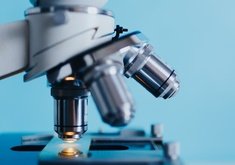Featured Quizzes
User Quizzes
Create Quiz
Data and Charts
Badges and Games
About JetPunk
JetPunk Shop
Dark Mode

Science Quiz #1
There will be three stages of the quiz:
1. Chemistry 2. Biology 3. Physics.
Choose the answer you think is correct under the question. Hope you enjoy and learn something new. Good luck!
Rate:
Last updated: August 6, 2020
You have not attempted this quiz yet.
More quiz info >>
| First submitted | August 6, 2020 |
| Times taken | 63 |
| Average score | 83.3% | Report this quiz | Report |
3:00
The quiz is paused. You have remaining.
Scoring
You scored / = %
This beats or equals
% of test takers
also scored 100%
The average score is
Your high score is
Your fastest time is
Keep scrolling down for answers and more stats ...
1.
What range of numbers in the pH scale are alkali?
2-7
✓
0-6
✓
8-14
✓
6-12.
✓
Everything above the pH of 7 (neutral) is alkaline.
2.
What are sedimentary rocks?
Rocks that are formed from lava when cooling down
✓
Rocks that were made from feces
✓
Rocks that have over time formed layers out of particles of sand
✓
Rocks that have changed from Igneous rocks.
✓
Sedimentary rocks form layers of sand overtime. Fossils can also be found inside them.
3.
What element from the periodic table is number 45?
Lithium
✓
Rhodium
✓
Copper
✓
Chlorine.
✓
Rhodium is number 45 in the Periodic Table (Rh 45).
4.
What colour is litmus paper in a weak acid?
Light blue
✓
Light green
✓
Dark purple
✓
Light red.
✓
The number 0 is the strongest acid (dark red), which means that number 14 is the strongest alkali (dark purple/blue).
5.
Why are plants green?
They have a green pigment in their cell
✓
The first plant was painted green and then produced more plants like itself
✓
They have and green LED light inside them
✓
They are made up of green veins.
✓
Plants have a pigment in their cells that makes them green. It is known as chlorophyll.
6.
What do plant cells have that animal cells don't?
Cell membrane, Cell wall
✓
Vacuole, Nucleus
✓
Cell wall, Chlorophyll
✓
Cytoplasm.
✓
Plant cells: cell wall, cell membrane, nucleus, vacuole. Animal cells: cell membrane, nucleus, vacuole.
7.
What does the digestive system do?
Breaks down particles of food which are turned into a disposable material
✓
Controls our body through the brain
✓
Makes our body stay in place
✓
Chooses our food.
✓
The digestive system 'digests' the food and leaves some of it in our blood.
8.
Name a bone in your body that starts with the letter 'U'.
Umbilical cord
✓
Ulna
✓
Unguligrade locomotion
✓
Uterus.
✓
Ulna starts with the letter 'U' and is located underneath the radius (lower arm bone).
9.
Which planets are Gas Giants?
Mercury, Venus, Earth, Mars
✓
Jupiter, Saturn, Uranus, Neptune
✓
Saturn, Mars
✓
Earth, Saturn, Neptune, Uranus.
✓
A Gas Giant is a large planet of relatively low density consisting predominantly of hydrogen and helium.
10.
Define what friction is.
A place in the Phillipines
✓
A force that attracts a body towards the centre of the earth
✓
A piece of iron that attracts small particles that are magnetic
✓
A force that acts in an opposite motion.
✓
Friction can act when you run and it will keep you from falling over.
11.
What is the Earth made of?
Crust, Rocks, Water
✓
Fruits, Vegetables
✓
Crust, Mantle, Outer core, Inner core
✓
Earth, Mud.
✓
The crust, mantle, outer and inner core are layers of the Earth. The core is made of metals.
12.
What are some sources of chemical energy?
Photosynthesis,Oxygen
✓
Wood, Bricks, Metal
✓
Water, Fire
✓
Fuel, Batteries, Food.
✓
Fuel, batteries, and food give/produce energy which we use every day.
No comments yet
New and Popular
Save Your Progress
Copyright H Brothers Inc, 2008–2024
Contact Us | Go To Top | View Mobile Site
